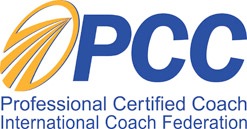Executive Coaching
An Understanding of Implicit Memory Has Real Implications for Self-Awareness in Leaders
Implicit memory is a type of memory in which previous experiences aid in the performance of a task without conscious awareness of these previous experiences. Schacter, D. L. (1987). Journal of Experimental Psychology: Learning, Memory, and Cognition, 13, 501-518. . We have all reacted unreasonably or unproductively and seen others do the same. An understanding of implicit memory has real implications for self-awareness in leaders. This understanding can help us manage our own behavior and help us avoid being sucked into reacting to someone else’s unreasonable behavior. “What’s crucial to understand about implicit memory — especially when it comes to our kids and their fears and frustrations–is that implicit memories cause us to form expectations about the way the world works, based on our previous experiences. Because neurons that fire together wire together, we create mental models based on what’s gone on in the past. This is because implicit memory creates something called “priming” in which the brain readies itself to respond in a certain way.” From Dr. Dan Siegel and Tina Payne Bryson, Ph.D., The Whole-Brain Child Our brain is designed to react based on previous and repeated experiences. We form mental models for making sense of the world based on implicit memory. We recognize these mental models as our beliefs, perceptions, habits, expectations, and assumptions. Implicit memory helps us run on automatic pilot and to react without thought. Sometimes this is great, like in an emergency, or when we are running late for work. Sometimes it is not so great, like when we find ourselves reacting unreasonably or unproductively (again). To develop as leaders, we need to increase our conscious awareness of the existence of the mental models we created from implicit memory so we can evaluate their effectiveness. Or just to realize they exist and are likely not helpful in the present moment. Rather than react, we want to be better able to consciously choose to respond in order to get the results we want and be the leader and/or parent we want to be. This is about training our minds through our awareness to intervene and interrupt the reactions led by our brains. In my executive coaching, I use the Results Accelerator™ to help my clients expand awareness of their mental models, or systems (beliefs, perceptions, habits, expectations, and assumption), so they can more consciously and effectively choose how they will respond and lead. Leadership is not a position. It is the expression of our best and most capable selves. Leadership is a choice. My best to you. Please feel free to send your comments and...
Read MoreWhy Is It So Hard to Say No to the Boss?
Because she’s the boss. If you say no, the boss might not like it. You might not get promoted. You might be fired. Your world might end. You might die. Perhaps this sounds a little irrational and extreme, but when I was willing to look closely at my own experience, I found it wasn’t so crazy after all. I am not talking about refusing to perform your job duties. I am suggesting that there may be times when you need to • say no or negotiate • express a contrary thought or idea. • manage a boundary between your personal life and work life I am talking about what adults may need to do as a matter of course to effectively manage their lives and careers. We forget that we were small versions of ourselves at one time, and depended on our parents for food, shelter, love and approval. We depended on them for our very survival. If we said no or misbehaved, we were likely to be afraid that our survival was at risk. Our parents were our first bosses. Our original family was the first organization we were a part of. Our primary role in that organization was as an employee. Our parent(s) were the boss(es). Based on the specifics of our early experiences with authority, we came to certain conclusions about what we needed to be and do in order to survive and be successful. We practiced those thoughts and behaviors and they became a system. The system is made up of our beliefs, perceptions, habits, expectations and assumptions for relating to authority. I’ll use me as an example. My boss parent was angry and inconsistent. I never knew what I would encounter when I got home from school. I came to the conclusion that I needed to be very careful about what I shared and how I shared it. I needed to do whatever I could to make the boss happy. I learned that authority figures were to be feared and avoided. This became my system for relating to authority and was applied without realizing it when I engaged with a boss. I was a perfectionist and a workaholic. I was hesitant to say no or express my own thoughts and ideas if I thought they ran counter to what I thought the boss wanted. This was not a very successful or sustainable model for being a leader and a person with a life. This is where my AdultLeader came in. It is the self that realized that my system for relating to authority was not working to get me the results I wanted. I needed to develop a new system with new thoughts and behaviors in order to be a happier person and a more effective leader. 1. What is something you want to say no to, negotiate, or be or do differently with your boss or someone in authority? 2. How important on a scale of 1 to 10 is this to you? 3. What result do you think you will get if you are able to do this? Imagine what that would look and feel like for a minute 4. What will you as your AdultLeader do? My best to you. Please feel free to send your thoughts and...
Read MoreWhat does it feel like to be the AdultLeader and does it matter?
It feels good to be the AdultLeader when we make choices in life and work that support our identity and values. It feels good to be the person we want to be for ourselves, our families and our organizations. As an executive coach, I see clients who struggle with the stress and pressure of their “always on” lives and the effect that has on their ability to integrate their life and work in a way that allows them • to feel more confident about the job they are doing and the leader they are being • to be more present and engaged when they are home with their families • to reduce stress and worry, sleep better, and exercise more There is always a better feeling associated with those outcomes. It may be relief, inner peace, satisfaction, excitement, passion and joy. We all want to be happy. That is almost always the reason behind anything we want. By paying attention to what we are feeling we can be alerted to what is working and what needs to change. Our feelings are feedback from our real self or AdultLeader. 1. It feels good to be the AdultLeader when we choose to respond in a way that supports our identity and values, or that define who we want to be and what is most important to us. As a result, we are authentically and effectively bringing our real self into the world, and are most likely getting a result we want. 2. It feels bad when we react in a way that ignores our identity and values. In this case, our idealized self or system is making choices for us while we sit uncomfortably in the back seat. We need to get into the driver’s seat and change direction if we are going to get where we want. So, if you are willing slow down a little and pay more attention to what you are feeling, you can use this as an indicator that will let you know – 1. That you are heading in the right direction because you feel good 2. Or that a different choice is beckoning to you because you feel bad. Here are some questions for you: 1. What is something you are struggling with right now? 2. If you were to imagine yourself feeling good about it, what would you be doing differently? 3. What is really important to you about this? 4. What will your AdultLeader do and by when? Thanks for reading. Please feel free to share your comments or...
Read More







